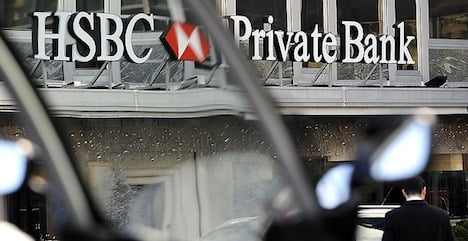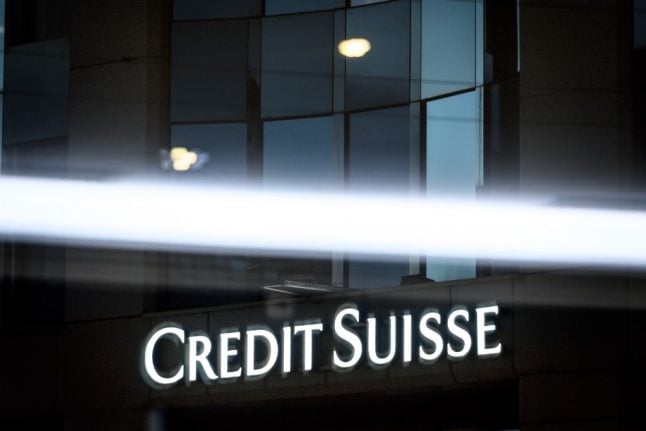HSBC said in a statement on Thursday that "it has been placed under formal criminal investigation by the French magistrates in connection with the conduct of its Swiss HSBC Private Bank in 2006 and 2007 for alleged tax-related offences".
The probe is in addition to one launched by French authorities last year into the Geneva-based subsidiary.
That HSBC unit was caught up in the so-called "SwissLeaks" affair: revelations that it allegedly helped over 120,000 clients to hide €180.6 billion ($193.6 billion) from tax authorities.
The revelations were made in February by international newspapers led by France's Le Monde after they studied stolen documents supplied by former HSBC IT employee Herve Falciani.
They came among growing evidence that pledges by banks to halt illicit or irresponsible activities that led up to the 2008 financial crisis have not been fulfilled.
French magistrates, who have had access to Falciani's data for years, had already launched a criminal probe against HSBC's Swiss Private Bank last November on suspicions it helped clients launder tax fraud proceeds and illegally approaching French clients.
In addition to that distinct case, French magistrates have now launched a probe against the parent company, HSBC Holdings Plc, for complicity in the actions of its Swiss unit.
The London-based parent company "is being reproached for failures to monitor and control its Swiss subsidiary", a source close to the case told AFP.
While in February the British bank acknowledged that "we sometimes failed to live up to the standards the societies we serve rightly expected from us," on Thursday it called the latest decision by French magistrates "without legal basis".
HSBC was also been ordered to post €1 billion in bail, which it called "unwarranted and excessive".
HSBC to 'defend itself vigorously'
The bank said it would appeal the decision by the French magistrates and "defend itself vigorously in any future proceedings".
In France, being placed under formal investigation occurs when an examining magistrate decides there is a case to be answered.
The probe against HSBC Private Bank Suisse has been completed and is waiting for by a final decision by magistrates whether to bring the case against the bank to trial or drop it.
According to the investigations into Falciani's whistle-blowing data, HSBC's Swiss unit allegedly arranged for more than five billion euros to be tucked away in trusts, shell companies and offshore accounts for around 9,000 French clients.
An official close to the case said last month that investigating magistrates leading the French inquiry had obtained evidence indicating HSBC "benefitted from proceeds of financial fraud and, in organizing the obscuring of financial flows, laundered funds of illicit origins, allowing thousands of clients holding large accounts to hide them from the French tax administration."
The formal probe follows the failure to reach a plea bargaining deal between prosecutors and HSBC, which refused to pay the fine being sought, the source close to the inquiry said.
In certain instances, fines in plea bargaining arrangements can represent half of total sums believed to have been involved in illegal activities.
Several investigations into HSBC's Swiss unit are underway in Europe, including in Spain and Belgium.
Investors appeared unfazed by the new probe as HSBC's shares were up nearly 2.7 percent in afternoon trading to 602.70 pence while London's blue-chip FTSE 100 index was up 1.14 percent overall.



 Please whitelist us to continue reading.
Please whitelist us to continue reading.
Member comments